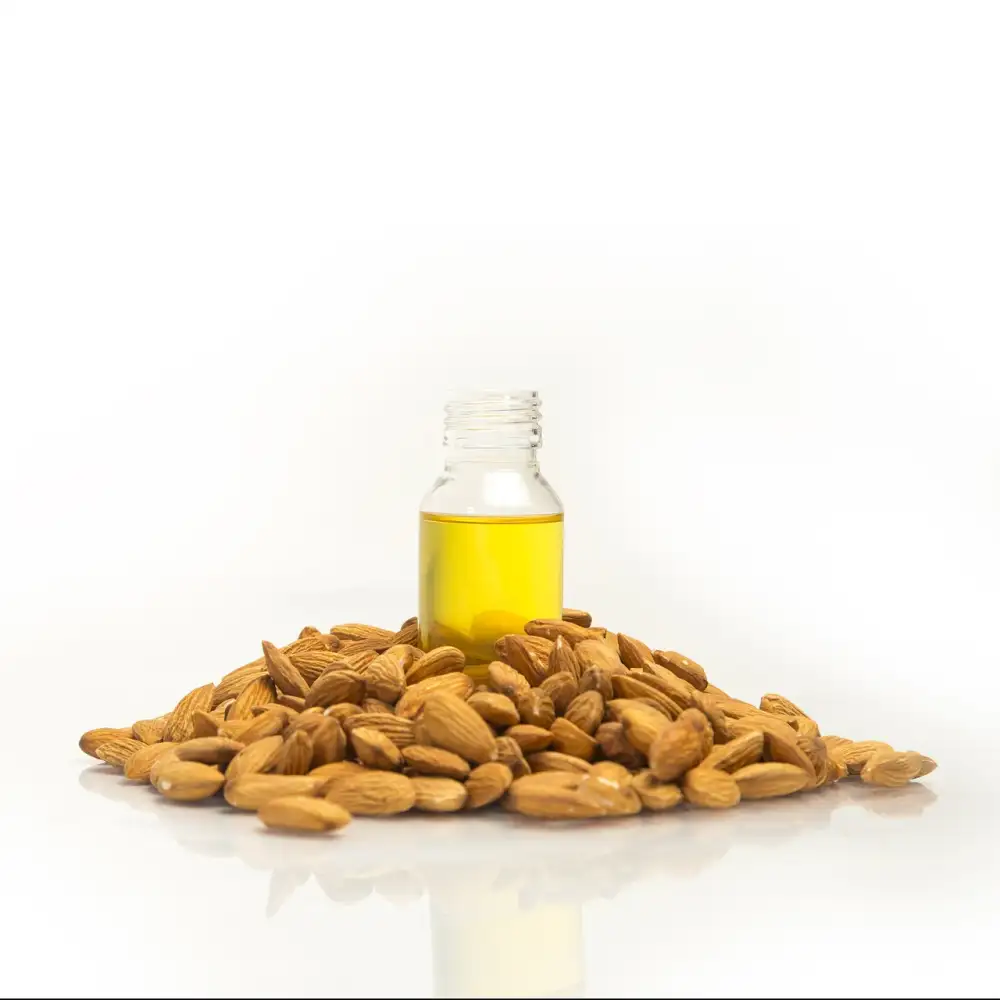Discover the Nutritional Power of Seed Oils: Elevate Your Health with Nature's Secret

- Understanding the Nutritional Composition of Seed Oils
- Exploring the Heart-Healthy Properties of Seed Oils
- The Role of Seed Oils in Promoting Brain Health
- Seed Oils and their Potential Anti-inflammatory Effects
- Seed Oils as a Source of Essential Fatty Acids
- Incorporating Seed Oils into a Balanced Diet for Optimal Health
- Choosing the Right Seed Oil for Your Cooking Needs
- Precautions and Considerations when Using Seed Oils
Seed oils, derived from various seeds such as flaxseed, sunflower, sesame, and pumpkin, have long been valued for their health benefits. These oils are rich in essential nutrients like vitamins, minerals, and antioxidants. They offer a range of health benefits including promoting heart health, supporting brain function, reducing inflammation, and providing essential fatty acids. Incorporating seed oils into your diet can elevate your health and well-being by harnessing the power of nature's secret.
Understanding the Nutritional Composition of Seed Oils
Seed oils are a rich source of essential nutrients that can elevate your health. They are packed with vitamins, minerals, and antioxidants that promote overall well-being. These oils are derived from various seeds such as flaxseed, sunflower, sesame, and pumpkin. Each seed oil has its unique nutritional composition, but they all share common beneficial properties. They are high in healthy fats like omega-3 and omega-6 fatty acids, which play a crucial role in maintaining heart health and reducing inflammation in the body. Additionally, seed oils contain vitamin E, an antioxidant that protects cells from damage caused by free radicals. Understanding the nutritional composition of seed oils is essential for harnessing their health benefits and incorporating them into your diet for optimal wellness.
Exploring the Heart-Healthy Properties of Seed Oils
Seed oils are not only delicious additions to our meals, but they also offer numerous health benefits, particularly for our heart. These oils are rich in monounsaturated and polyunsaturated fats, which have been shown to lower LDL cholesterol levels. High levels of LDL cholesterol can lead to the buildup of plaque in our arteries, increasing the risk of heart disease. By incorporating seed oils into our diet, we can help reduce this risk and promote a healthy heart. Additionally, seed oils contain omega-3 fatty acids, which have been linked to a reduced risk of heart disease and improved cardiovascular health.
The Role of Seed Oils in Promoting Brain Health
Seed oils play a crucial role in promoting brain health. They are rich in omega-3 and omega-6 fatty acids, which are essential for the proper functioning of the brain. These fatty acids help support cognitive function, improve memory, and enhance overall brain health. Research has shown that a diet high in seed oils can reduce the risk of age-related cognitive decline and neurodegenerative diseases like Alzheimer's. Incorporating seed oils into your diet can help nourish your brain and support optimal brain function throughout life.
Seed Oils and their Potential Anti-inflammatory Effects
Seed oils have gained attention for their potential anti-inflammatory effects. Many seed oils, such as flaxseed oil and hemp seed oil, contain high levels of omega-3 fatty acids. These fatty acids have been shown to reduce inflammation in the body by inhibiting the production of inflammatory molecules. In addition, seed oils are rich in antioxidants, which can also help combat inflammation. Incorporating seed oils into your diet may help reduce the risk of chronic diseases associated with inflammation, such as heart disease and arthritis.
Seed Oils as a Source of Essential Fatty Acids
Seed oils are an excellent source of essential fatty acids, which are crucial for our overall health. These fatty acids cannot be produced by our bodies and must be obtained through our diet. Seed oils, such as flaxseed oil, hemp seed oil, and chia seed oil, are rich in omega-3 and omega-6 fatty acids.
Omega-3 fatty acids play a vital role in brain function and development. They have been linked to improved cognitive function, reduced risk of depression, and enhanced memory. Omega-6 fatty acids, on the other hand, are essential for healthy skin and hair, as well as proper hormone production.
By incorporating seed oils into your diet, you can ensure that you're getting an adequate amount of these essential fatty acids. Whether you drizzle them over salads or use them in cooking, seed oils provide a convenient way to boost your intake of these beneficial nutrients.
However, it's important to note that while essential fatty acids are necessary for good health, they should be consumed in moderation. Excessive consumption of omega-6 fatty acids relative to omega-3s has been associated with inflammation and certain health conditions.
To maintain a healthy balance of essential fatty acids in your diet, aim for a ratio of approximately 4:1 or 2:1 (omega-6 to omega-3). This can be achieved by incorporating a variety of seed oils into your meals and also consuming foods rich in omega-3s like fatty fish, walnuts, and flaxseeds.
In conclusion, seed oils offer a valuable source of essential fatty acids that contribute to overall health. By including them in your diet alongside other sources of omega-3s and maintaining a balanced ratio between omega-6s and omega-3s, you can optimize your nutritional intake and support various aspects of your well-being.
Incorporating Seed Oils into a Balanced Diet for Optimal Health
Incorporating seed oils into a balanced diet is a simple and effective way to enhance your overall health. These oils can be used in various ways, such as salad dressings, marinades, or even as a finishing touch on cooked dishes. To maximize the nutritional benefits, it is important to choose high-quality, cold-pressed seed oils that are free from additives or preservatives. Start by incorporating small amounts into your meals and gradually increase the quantity. Remember to store them in a cool, dark place to maintain their freshness and potency. By including seed oils in your daily diet, you can elevate your health and enjoy the numerous benefits they offer.
Choosing the Right Seed Oil for Your Cooking Needs
When it comes to choosing the right seed oil for your cooking needs, there are a few factors to consider. First, consider the smoke point of the oil. Different oils have different smoke points, which is the temperature at which they start to break down and produce smoke. For high-heat cooking methods like frying or sautéing, opt for oils with high smoke points such as avocado oil or peanut oil.
Next, consider the flavor profile of the oil. Some seed oils have a neutral taste that won't overpower your dishes, while others have distinct flavors that can enhance certain recipes. For example, sesame oil adds a nutty flavor to stir-fries and salads, while walnut oil adds richness to dressings and baked goods.
Additionally, take into account the nutritional benefits of each seed oil. Some oils are rich in omega-3 fatty acids, like flaxseed oil, which can be beneficial for heart health. Others are high in monounsaturated fats, like olive oil, which can help lower bad cholesterol levels.
Lastly, consider your personal preferences and dietary restrictions. If you have allergies or sensitivities to certain seeds or nuts, be sure to choose an oil that is safe for you to consume.
By considering these factors and experimenting with different seed oils in your cooking, you can find the perfect match for your culinary creations while reaping their numerous health benefits.
Precautions and Considerations when Using Seed Oils
When using seed oils, it is important to be aware of certain precautions and considerations. Firstly, some seed oils have a low smoke point, which means they can break down and release harmful compounds when heated at high temperatures. It is crucial to choose the right oil for your cooking needs and use lower heat settings when necessary.
Additionally, some individuals may have allergies or sensitivities to specific seeds or their oils. It is essential to read labels carefully and consult with a healthcare professional if you have any concerns or known allergies.
Furthermore, while seed oils are rich in healthy fats, they are still high in calories. Moderation is key when incorporating them into your diet to avoid excessive calorie intake.
Lastly, storing seed oils properly is crucial to maintain their freshness and quality. They should be stored in a cool, dark place away from direct sunlight and heat sources. It is also advisable to check the expiration date regularly and discard any oil that has gone rancid.
By being mindful of these precautions and considerations, you can safely enjoy the numerous health benefits that seed oils offer as part of a balanced diet.
In conclusion, seed oils offer a plethora of health benefits that should not be overlooked. From their heart-healthy properties to their potential anti-inflammatory effects, these oils have the power to elevate your health and well-being. Incorporating seed oils into your diet can provide you with essential fatty acids and promote brain health. However, it is important to choose the right seed oil for your cooking needs and consider any precautions or allergies you may have. Embrace the nutritional power of seed oils and unlock nature's secret to optimal health today!
Published: 28. 12. 2023
Category: Food



